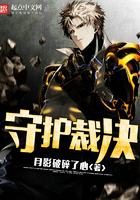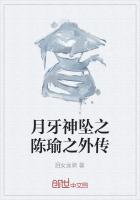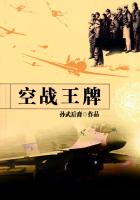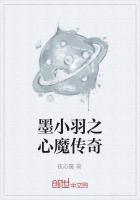Indeed this little Scotsman, now at the crowning of his glory, was one of the loneliest figures in the world.Practically all the forty men with whom he had been closely associated had vanished from the scene.He had quarreled with his playmate and lifelong partner, Henry Phipps, and was in the worst possible business and personal relations with Frick.He had no son to carry on his work.He had become greatly interested in his philanthropies, and he had declared that the man who died rich died disgraced.Moreover, new influences were rising in the steel trade with which Carnegie had little sympathy.Its national capital seemed to be shifting from Pittsburgh to Wall Street.New men who knew nothing about steel but who possessed an intimate acquaintance with stocks and bonds--J.Pierpont Morgan, George W.
Perkins, and their associates--were branching out as controllers of large steel interests.Carnegie had no interest in Wall Street; he has declared that he never speculated in his life and that he would immediately dissociate himself from any partner who would do so.This Wall Street coterie, in the years from 1898 to 1900, had made several large combinations in the steel trade.
That was the era when the trust mania had gained possession of the American mind and when its worst features displayed themselves.The Federal Steel Company, the American Bridge Company, the American Steel and Wire, the National Tube Company, all representing the assembling of large works which had been engaged as rivals in similar enterprises, were launched, with the usual accompaniments of "underwriting syndicates," watered stock, and Wall Street speculation.This sort of thing made no appeal to Andrew Carnegie.His huge enterprise had always remained essentially a copartnership, and he had frequently expressed his abhorrence of trusts.Yet, in spite of his wish to retire from business and in spite of his avowed intention to die poor, Carnegie now adopted the policy of the Sibylline leaves to all prospective purchasers.Moore and Reid would have purchased his interest for $157,000,000; when Rockefeller came along the price had risen to $250,000,000; when the oil man shook his head and retired, Carnegie immediately raised his price to $500,000,000.
It is doubtful whether he would have sold at all had not his Wall Street competitors begun to encroach on a field which the little Scotsman understood quite as well as they--the production and merchandising of steel.The newly organized combinations were completing elaborate plans to go after Carnegie's business.Then Carnegie, who had practically retired from active life, again arrayed himself in his shirt-sleeves, abandoned his career of authorship, and resumed his early trade.His first attacks produced an immense reverberation in the House of Morgan.He purchased a huge tract at Conneaut and began building a gigantic plant for the manufacture of steel tubes, a business in which he had not hitherto engaged.This was a blow aimed at one of Morgan's pet new creations, the National Tube Company.Should Carnegie finish his works, there was no doubt the Morgan enterprise would be ruined, for the new plant would be far more modern and so could manufacture the product at a much lower price; and, with Charles M.Schwab as active manager, what possible chance would the older corporation have? But Carnegie struck his enemy at an even more vulnerable point.The Pennsylvania Railroad had a practical monopoly of traffic in and out of Pittsburgh, and Pittsburgh "created" more freight business than any other city in the world.Carnegie lent his powerful support to George J.Gould, who was then extending his railroad system into the preempted field and was also ****** surveys and had financed a company to build an entirely new railroad from Pittsburgh to the Atlantic Coast.As Carnegie himself controlled the larger part of the freight that made Pittsburgh such an essential feeder to railroads, his new enterprise caused the greatest alarm.At the same time Carnegie equipped a new and splendid fleet of ore ships, his purpose being to enter a field of transportation which John D.Rockefeller had found extremely profitable.
Such were the circumstances and such were the motives that gave birth to the world's largest corporation.All one night, so the story goes, Charles M.Schwab and John W.Gates discussed the steel situation with J.Pierpont Morgan.There was only one possible solution, they said--Andrew Carnegie must be bought out.
By the time the morning sun came through the windows Morgan had been convinced."Go and ask him what he will sell for," he said to Schwab.In a brief period Schwab came back to Morgan with a letter which contained the following figures--five per cent gold bonds $303,450,000; preferred stock $98,277,100; common stock $90,279,000--a total of over $492,000,000.Carnegie demanded no cash; he preferred to hold a huge first mortgage on a business whose golden opportunities he knew so well.Morgan, who had been accustomed all his life to dictate to other men, had now met a man who was able to dictate to him.And he capitulated.The man who fifty-three years before had started life in a new country as a bobbin-boy at a dollar and twenty cents a week, now at the age of sixty-six retired from business the second richest man in the world.With him retired a miscellaneous assortment of millionaires whose fortunes he had made and whose subsequent careers in the United States and in Europe have given a peculiar significance to the name "Pittsburgh Millionaires." The United States Steel Corporation, the combination that included not only the Carnegie Company but seventy per cent of all the steel concerns in the country, was really a trust made up of trusts.It had a capitalization of a billion and a half, of which about $700,000,000 was composed of the commodity usually known as "water"; but so greatly has its business grown and so capably has it been managed that all this liquid material has since been converted into more solid substance.The disappearance of Andrew Carnegie and his coworkers and the emergence of this gigantic enterprise completed the great business cycle in the steel trade.
The age of individual enterprise and competition had passed--that of corporate control had arrived.















